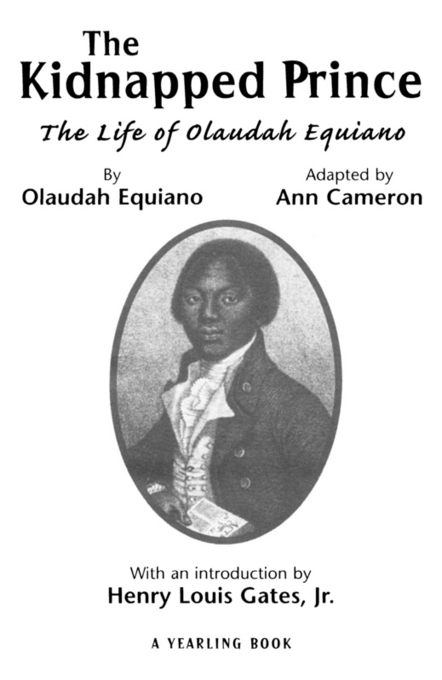Praise for
The Kidnapped Prince
The Life of Olaudah Equiano
 A gripping true story of adventure, betrayal, cruelty, and courage. In searing scenes, Equiano describes the savagery of his capture, the appalling conditions on the slave ship, the auction, and the forced labor. Yet he survives; he retains his humanity, and he earns his freedom.
A gripping true story of adventure, betrayal, cruelty, and courage. In searing scenes, Equiano describes the savagery of his capture, the appalling conditions on the slave ship, the auction, and the forced labor. Yet he survives; he retains his humanity, and he earns his freedom.
Booklist, Boxed Review
The inspired simplicity of Camerons adaptation quickly allows Equianos gifted voice to establish a compelling relationship between himself and young readers. His story is a must for multicultural or history collections.
School Library Journal

For more than forty years,
Yearling has been the leading name
in classic and award-winning literature
for young readers.
Yearling books feature childrens
favorite authors and characters,
providing dynamic stories of adventure,
humor, history, mystery, and fantasy.
Trust Yearling paperbacks to entertain,
inspire, and promote the love of reading
in all children.
OTHER YEARLING BOOKS
BY ANN CAMERON YOU WILL ENJOY
THE STORIES JULIAN TELLS
MORE STORIES JULIAN TELLS
THE STORIES HUEY TELLS
MORE STORIES HUEY TELLS
JULIANS GLORIOUS SUMMER
JULIAN, DREAM DOCTOR
JULIAN, SECRET AGENT
GLORIA RISING
THE MOST BEAUTIFUL PLACE IN THE WORLD
Published by Yearling, an imprint of Random House Childrens Books a division of Random House, Inc., New York
Text copyright 1995 by Ann Cameron
Introduction copyright 1995 by Henry Louis Gates, Jr.
Map copyright 1995 by Rodica Prato
All rights reserved. No part of this book may be reproduced or transmitted in any form or by any means, electronic or mechanical, recording, or by any information storage and retrieval system, without the written permission of the publisher, except where permitted by law. For information address Alfred A. Knopf Books for Young Readers.
Yearling and the jumping horse design are registered trademarks of Random House, Inc.
Visit us on the Web! www.randomhouse.com/kids
Educators and librarians, for a variety of teaching tools, visit us at
www.randomhouse.com/teachers
eISBN: 978-0-307-77022-6
Reprinted by arrangement with Alfred A. Knopf Books for Young Readers
v3.1
Contents
I NTRODUCTION
Olaudah Equiano was an African boya princewho was kidnapped and carried off to a strange new world. Under its cruel laws he was legally nothing more than another mans property, with no right to decide the course of his life or to protest anything that was done to him.
What is remarkable is that under these oppressive conditions he survivedwithout losing his sanity, integrity, or sense of humor. Before gaining his freedom, he received a wide and varied education and became one of the best-traveled people of his time. The history of his life is an inspiring account of overcoming hardship and a riveting adventure story as well.
Olaudah Equiano had important reasons for writing his autobiography. Many of those who traded or owned slaves had been made rich by slavery and were actively trying to defend it. They claimed that slaves were well-treated and happy. They said that Christianity permitted slavery and even endorsed it. They insisted that economic prosperity depended on slavery and it should never be abolished. They said that black people were strong but stupid, and so slavery suited them. They said that black people could never learn to read, much less to write a book.
Olaudah Equiano wanted to expose these claims as lies. Many people who were working to abolish slavery encouraged him to tell his story and helped him print his book. Olaudah wrote of his life not only for himself but for the millions of blacks still in slavery who could not make their voices heard. He knew that all Africans would be judged on the basis of his words. If he proved himself honest and intelligent, other black people might be seen that way, too. If he showed that he could write as powerfully as any white person, he would win respect both for himself and for other Africans suffering in bondage.
Olaudah Equiano knew how to tell a good story, and The Interesting Narrative of the Life of Olaudah Equiano became a bestseller soon after its publication in 1789. Within three years, eight editions were published in England and one in America. It became a classic and one of the founding works of a new branch of world literature: books written by Africans or people of African descent, captured or born into slavery and fighting to be free.
Olaudahs story portrayed both the graphic horrors of slavery and the boundless joys of freedom. And through his own example, he showed that a black person could be true to himself and still survive in a world he wanted no part ofand even make that world a better place. He showed that it was possible to use the tools of a cruel systemspecifically, the printed wordto prompt change. His unwavering faith and insatiable desire for education served as beacons for other blacks. Even as a boy, Olaudah Equiano seems to have known that learning would give him power and control over his life. He learned how to box and how to cut hair; how to navigate a ship, how to ride a horse, and how to load a gun; how to do accounts and how to trade in order to buy his freedom. And, most important, he learned to read and write.
I had often seen my master and Dick employed in reading; and I had a great curiosity to talk to the books, as I thought they did; and so to learn how all things had a beginning. For that purpose I have often taken up a book, and talked to it, and then put my ears to it, when alone, in hopes it would answer me; and I have been very much concerned when I found it remaining silent.
Once literate, Olaudah could make the book talk. For him and many others, this was an essential milestone; as the writer Ishmael Reed pointed out, the slave who learned to read and write was often the first to run away. Olaudah used his command of language not only to express his deepest feelings but also to affect the hearts and minds of thousands of readers. His words may even have changed the course of history.
Olaudah Equiano introduced in Western letters the inextricable link between literacy and freedom, between mastery of the written word and mastery of the self. By telling or writing the stories of their lives, more than 6,000 men and women contributed to the tradition of the slave narrativethe tradition that Equiano created. Many of them had read Equianos book and used it as a guide. Directly and indirectly, his autobiography influenced the writing and thinking of such later African-American writers as Frederick Douglass, Booker T. Washington, Zora Neale Hurston, Martin Luther King, Jr., Malcolm X, and Maya Angelou.
It has been more than 200 years since Olaudah published his book. No one reads the writings of the long-dead slave owners and traders anymore. But Olaudah Equianos autobiography is still in print and in bookstores, and every year it finds a new audience around the world. Ann Camerons skillful adaptation helps make this great work accessible to readers of all ages. It is a compelling story of innocence betrayed and wisdom earned, of a human beings passage from freedom to slavery and back again. Through his words, Olaudah Equianos indomitable spirit lives on.



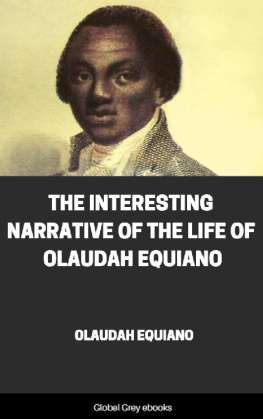

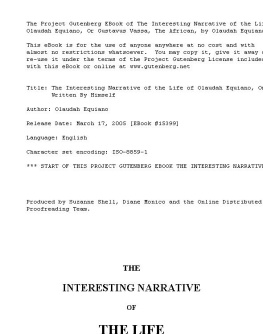
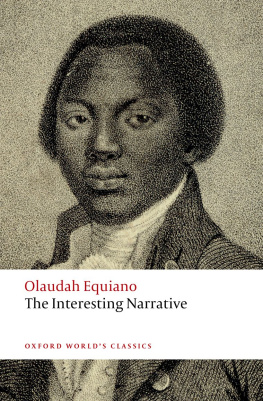
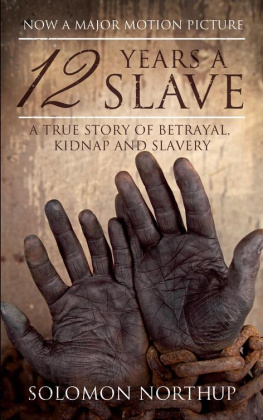
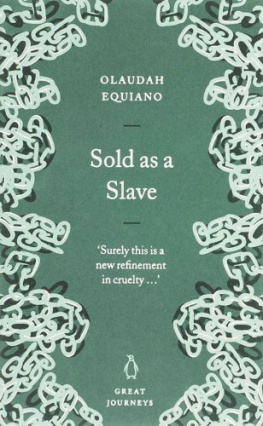
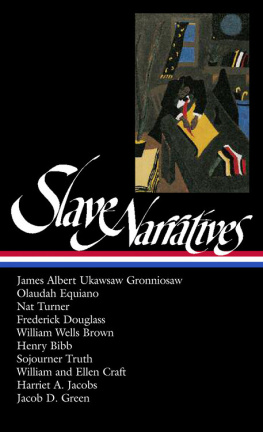
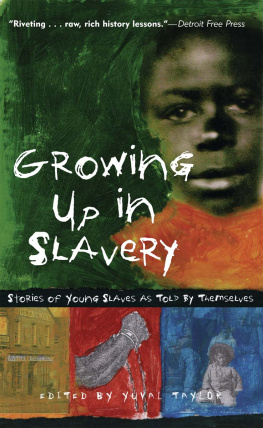
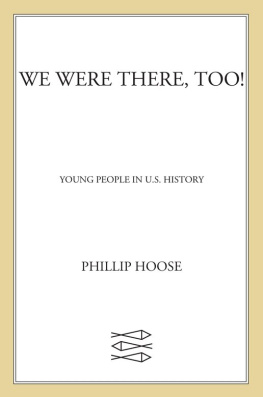
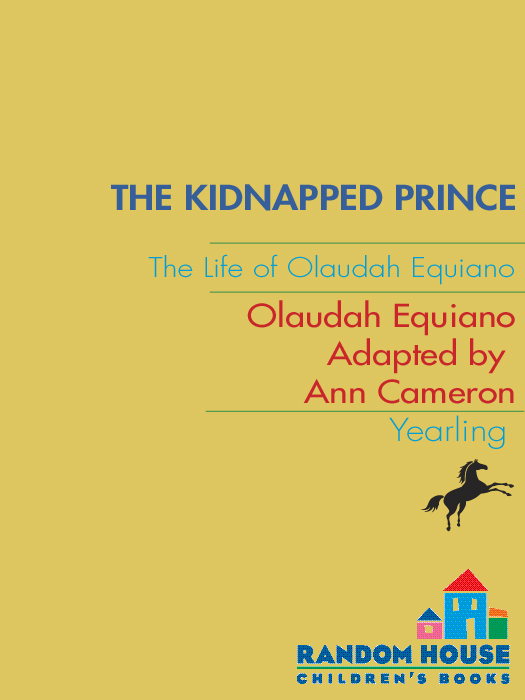
 A gripping true story of adventure, betrayal, cruelty, and courage. In searing scenes, Equiano describes the savagery of his capture, the appalling conditions on the slave ship, the auction, and the forced labor. Yet he survives; he retains his humanity, and he earns his freedom.
A gripping true story of adventure, betrayal, cruelty, and courage. In searing scenes, Equiano describes the savagery of his capture, the appalling conditions on the slave ship, the auction, and the forced labor. Yet he survives; he retains his humanity, and he earns his freedom.
